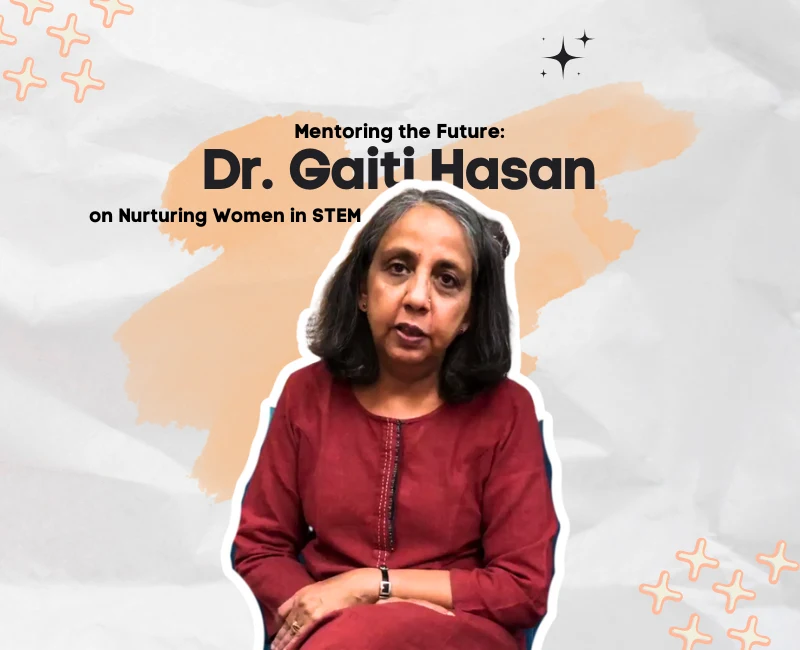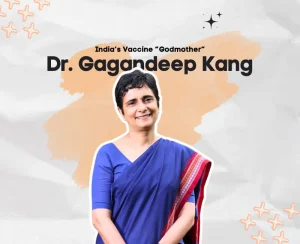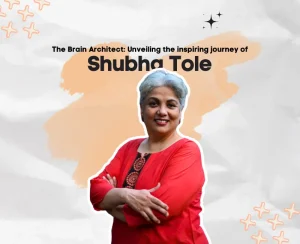Mentoring the Future: Dr. Gaiti Hasan on Nurturing Women in STEM

When Dr. Gaiti Hasan first peered through a microscope during her undergraduate studies, she never imagined it would lead to a career unraveling the mystery of cells and molecular biology. Her passion and dedication have made her one of the leading figures in the scientific community. Dr. Hasan’s contributions to understanding the molecular basis of development, disease, and neurobiology have earned her recognition in both national and international scientific circles.
Early Life
Dr. Gaiti Hasan was born in India in a humble family, where education is the utmost important, she was guided by a strong foundation. Her father and mother both dedicated their lives to teaching at a university, and her two elder sisters studied chemistry and physics, so she was naturally drawn to science. Initially she was intrigued about studying physics but due to the lack of qualified mathematics teachers in her school in Aligarh, she found herself choosing between chemistry and biology. Reflecting on this, she said, “My school in Aligarh did not have a mathematics teacher qualified to teach us higher secondary level math; without math no good university would admit one to an undergraduate degree in physics.” This redirection proved to be serendipitous, as biology soon became her primary interest.
She recalls in an interview with Gita Chadha, “By the time I reached class 9th class, I was the only girl in my class, apart from me there were three or four other boys”. She remembers how she felt lonely as all her friends left but due to some excellent women science teachers she was encouraged to continue her study. She pursued a degree in zoology at Miranda House, Delhi University, where the all-women faculty and the emphasis on hands-on experiments further ignited her passion for science.
The Pursue for Higher Studies
During her undergraduate studies she stumbled upon the wealth of knowledge in the library. Where she found herself spending time reading physiology, development, ecology and evolution in the college library. In Miranda House she realized the gaps in molecular biology and genetics education at the undergraduate level. This was the reason Dr. Hasan chose to pursue her Master’s degree at the newly established School of Life Sciences (SLS) at Jawaharlal Nehru University (JNU), New Delhi. There, she was inspired by visionary mentors like H.K. Das and P.C. Kesavan, who guided her toward molecular genetics.
During her Master’s, she also attended two summer schools at the Tata Institute of Fundamental Research (TIFR) in Mumbai, immersing herself in experimental molecular biology. However, the field she wanted to work in—a mix of molecular genetics and biology—did not yet exist in India, prompting her to apply to universities in England.
The Journey to Research
Dr. Hasan completed her Ph.D. at Cambridge University, where she studied gene organization. There she learned the value of experimental rigor and holistic biological thinking, thanks to seminars and interactions with leading scientists. After completing her Ph.D., she returned to TIFR in Mumbai for postdoctoral research.
At TIFR, she studied olfactory genes in Drosophila, a project no one else in the world had undertaken at the time. This work, which she found like solving a detective novel, involved tracking genes down to the molecular level. She credits the intellectual environment at TIFR and the guidance from scientists like Obaid Siddiqi, Kavita Arora, and Veronica Rodrigues as pivotal to her training.
Dr. Gaiti Hasan NCBS
Dr. Gaiti Hasan is most widely known for her association with the National Centre for Biological Sciences (NCBS), Bangalore, one of India’s foremost research institutes. Before joining NCBS, she worked at Brandeis University for two years, where she explored the inositol 1,4,5-trisphosphate (InsP3) receptor in Drosophila, using cutting-edge techniques like PCR to clone the gene. This work became the foundation of her research at NCBS.
Dr. Gaiti Hasan NCBS journey has led several influential projects that explore the molecular mechanisms governing cellular processes, particularly in relation to neurobiology. She has been instrumental in advancing the understanding of how genes regulate brain function. Her research now bridges molecular genetics and human health, exploring connections between InsP3 receptor function in Drosophila and diseases such as diabetes and neurodegeneration.
After completing the molecular cloning of an olfactory gene, Dr. Hasan began considering how to use Drosophila molecular genetics to address more general problems in biology. She was married by now and her husband’s postdoctoral work in Boston led her to connect with Kalpana White, who was visiting TIFR at the time. White encouraged her to reach out to Michael Rosbash at Brandeis University in the Boston area. Initially, Dr. Hasan intended to study the period gene in mammals. However, after six months, realizing that the project was not progressing, she shifted her focus to reverse genetics in Drosophila. Supported by Rosbash, she began work on identifying the Drosophila receptor for inositol 1,4,5-trisphosphate (InsP3).
Using the then-novel technique of PCR, Dr. Hasan cloned the Drosophila InsP3 receptor gene at Brandeis and later brought the project to her newly established lab at NCBS. This project was ideal for launching her independent research, enabling her team to create mutants, perform molecular biology experiments, and investigate cellular functions, development, and physiology. Today, Gaiti Hasan lab continues to explore the links between InsP3 receptor function in Drosophila and human diseases such as diabetes and neurodegeneration.
Research and Contributions
Although she has contributed to many research works, her most notable works are based on developmental biology and neurogenetics. One of Dr. Hasan’s major research areas involves the study of signal transduction pathways and their roles in the development of the nervous system. Her work has provided valuable insights into molecular signaling pathways and their implications in diseases such as Alzheimer’s and Parkinson’s.
Beyond her scientific achievements, Dr. Hasan is a dedicated mentor to the next generation of researchers. She actively supports young women scientists, encouraging them to navigate the challenges of academia with resilience and determination. Her mentorship extends beyond technical training, emphasizing the importance of building confidence and fostering collaborative networks.
Dr. Hasan also advocates for increased visibility of women in science. She highlights the need for women to engage in networking to gain recognition in male-dominated academic spaces. “Most existing networks are male-dominated, and women need to work harder and more systematically to enter these,” she once noted. Her efforts have inspired many young researchers to pursue careers in science.
Awards and Recognitions
Throughout her career, Dr. Gaiti Hasan has received numerous accolades and awards for her contributions to the field of biology. She has been recognized for her leadership in scientific research, her commitment to mentoring young scientists, and her ability to bring innovative ideas to the forefront of the scientific community.
Dr. Hasan is a fellow of the Indian Academy of Sciences (IAS), an honor that highlights her standing as one of the leading researchers in India. In 2007, she was elected as a member of the Asia-Pacific Molecular Biology Network. She is also a fellow of Indian National Science Academy (INSA).
Challenges and Triumphs
Life was never easy for Dr. Hasan, even though she belonged to an educational family, hurdles never seemed to take ease on her. She realized early that being a woman in science comes with several problems but never thought she would encounter discrimination due to her minority background, that to be from a female academic. In an interview when asked “what are the challenges you faced as a woman?” She acknowledges that in patriarchal society it is difficult for women to be in a decision-making position but that never bothered her enough to stop her from doing anything. She never let this dampen her work in the scientific field.
Balancing a demanding career in science with raising a family has also been challenging. Dr. Hasan credits her supportive family for making it possible to manage both. Additionally, she highlights the need for women scientists to actively engage in networking to gain visibility in the largely male-dominated academic landscape.
Conclusion
Every woman in STEM, science, technology, engineering and mathematics is an icon for the upcoming generation of women in science. Their effort, dedication and resilience are weaving a tapestry of how to overcome personal and societal boundaries. Dr. Gaiti Hasan’s work in molecular biology is not only inspirational but paved the way for many future discoveries. Dr. Hasan’s story is a testament to the power of perseverance, intellectual curiosity, and the transformative impact of education. As she continues her groundbreaking work at NCBS, her journey serves as an inspiration for scientists and students alike.


